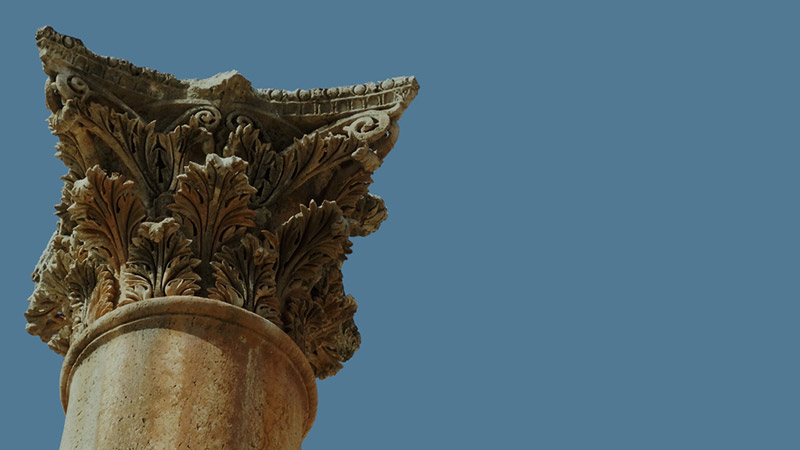More Results
Showing 12 of 420
Articles

Standing at the Crossroads
GezerTravel to Gezer, and learn what it means to stand at the Crossroads.Gezer is one of the greatest tels in Israel. To stand on this magnificent tel is to stand on a part of history that existed as many as 3,000 years before our Messiah walked t...
MOREEncyclopedia

Standing Stones
Sacred StonesLong before the Israelites entered Canaan, pagans in the Middle East erected sacred stones to honor their gods, to declare covenants and treaties between cities, or to honor an important event that could only be explained by the super...
MORE
Storehouses of Masada
This photograph shows the remains of the 15 storehouses on the eastern side of Masada. The one on the left is as it was found by archaeologists; the others have been reconstructed. In the background above the storehouses, you can see the Dead Sea,...
MORE
Susita
This photograph is taken from Mount Arbel on the western shore of the Sea of Galilee near Tiberias. The hilltop where Susita (Hippos) was located is clearly visible on the eastern shore. Towering over the Sea of Galilee, Susita is connected to the...
MORE
Synagogue Beginnings
There are many theories about the origin of a gathering place called "synagogue." The Greek word for synagogue means "assembly" and is used in place of the Hebrew word meaning "congregation" or "community of Isra...
MORE
Synagogue of En Gedi
This spectacular mosaic floor from a synagogue built in the second or third century was found at the oasis of En Gedi along the Dead Sea. The synagogue hall shown here is 45 feet long and about 30 feet wide. It follows the synagogue style found in...
MORE
Synagogue of Gamla
The remains of this synagogue, one of the oldest found in Israel, are outlined in this photograph. It apparently functioned as a community center because no specifically religious artifacts were found in it. However, the mikveh (ritual bath) uncov...
MORE
Synagogue of Korazin
Korazin was one of the cities where "most of his miracles had been performed" (Matt. 11:20). Typical of Galilean towns of the time, the synagogue occupied a prominent place on an elevated platform in the center of town, symbolizing the i...
MORE
Synagogue Worship
Sabbath WorshipWhile the synagogue building functioned as a community center, school, and court during the week, it became the meeting place for prayer on the Sabbath. When the first three stars could be seen on Friday evening, the hazzan blew the...
MORE
Synagogues of Jesus' Time
Synagogues continued to be a focal point for Jewish life during the first century. By the time Jesus' ministry began, a synagogue was found in most towns of Galilee. The Gospels specifically mention those of Nazareth (Matt. 13:54) and Capernaum (M...
MOREGlossary

Southern Kingdom Definition
When Israel divided after Solomon's death (926 BC), the tribe of Judah under Rehoboam became the southern kingdom, or Judah. In 586 BC, God punished the people for their sins by exiling them to Babylon for 70 years. Jesus was born of this tribe.
MORE
Spring of Gihon Definition
Spring in the Kidron Valley near Jerusalem. It was the main water source for the city during Old Testament times. Hezekiah built a tunnel that directed the spring's water inside the city walls. Gihon means "gushing out."
MORE

















